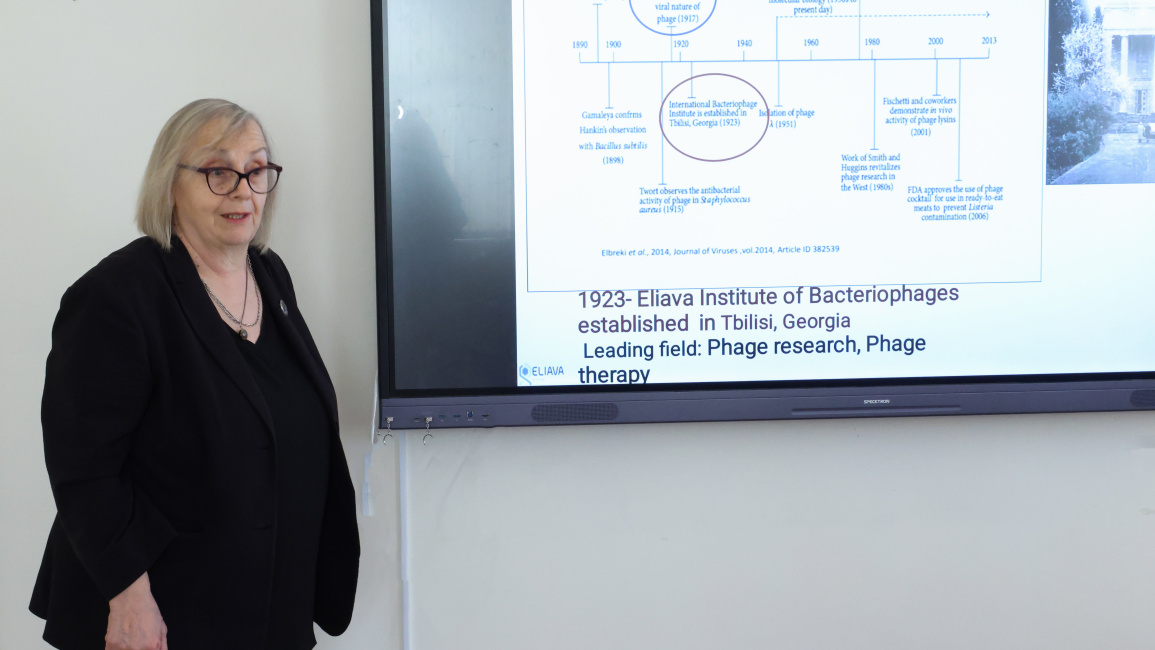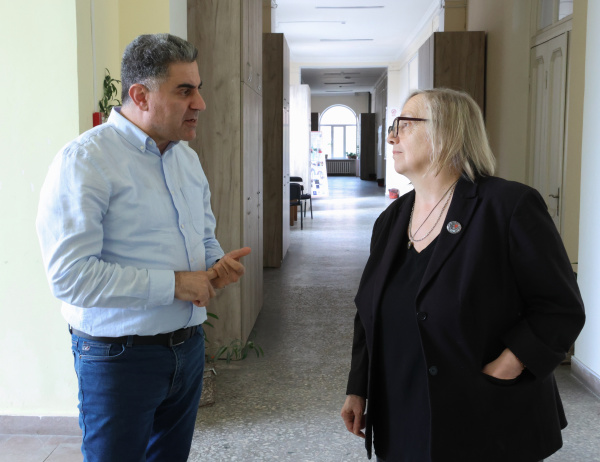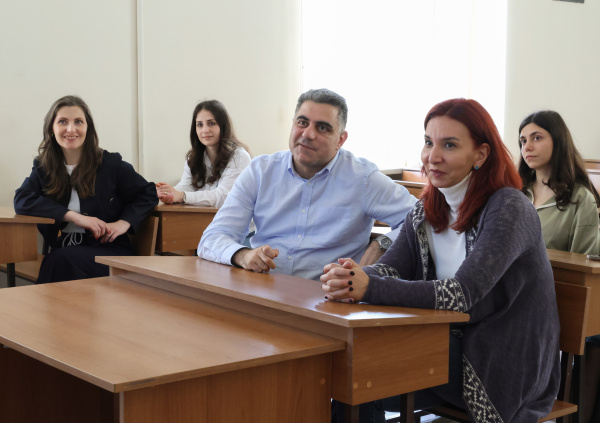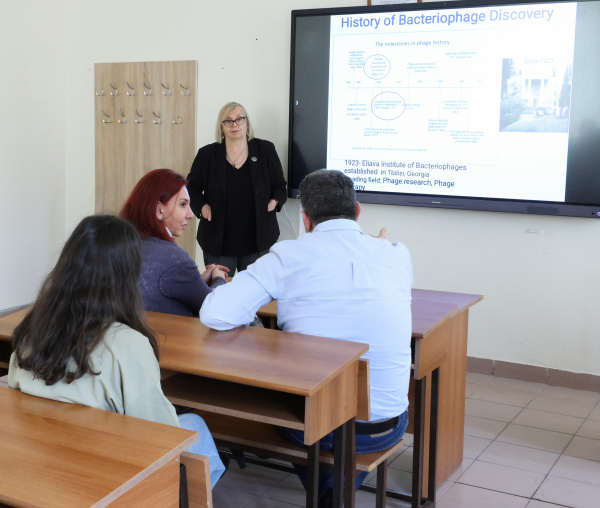April 16, 2025 | 11:00
Science
Partners
International cooperation
One Health: Unifying scientific approach to humans, animals, and nature
YSU Faculty of Biology, continuing its policy of expanding scientific collaborations, hosted Professor Marina Tediashvili, Doctor of Biological Sciences from George Eliava Institute of Bacteriophages, Microbiology and Virology, Georgia. Invited by Associate Professor Hovik Panosyan from the Chair of Biochemistry, Microbiology, and Biotechnology, Professor Tediashvili delivered a lecture titled "The Experience of the Eliava Institute in the One Health Concept", which attracted significant interest among students, academic staff, and researchers.

The Concept of One Health and Its Importance Today
The One Health concept is an integrated approach aimed at preserving the health of humans, animals, plants, and the environment. The core idea is the understanding that these four systems are interconnected: infections can be transmitted from animals and plants to humans, as well as spread through the environment via drinking water, soil, or air.

This agenda has become especially relevant in the context of globalization, climate change, and migration processes, which accelerate the spread of diseases. Consequently, One Health has become a key strategy for ensuring biological security and preventing pandemics.
The Role of Microbiology in One Health Approach
Microbiology is one of the cornerstones of this concept. Marina Tediashvili emphasized that the study of microorganisms, particularly bacteria and viruses, is crucial for identifying sources of diseases and their pathways of transmission. Environmental changes often lead to the emergence of infections that were previously not harmful to humans. Scientific analysis and forecasting of this dynamic are becoming urgent necessities.

100-Year Experience of Eliava Institute in One Health Concept
Professor Tediashvili presented the work of the Eliava Institute in Tbilisi, which has been engaged in the prevention of infectious diseases for nearly a century. The institute conducts extensive research related to the control of bacteria, the development of vaccines, serum production, and particularly the application of bacteriophages.
In recent years, the institute has also focused on controlling infections in animal health, aquaculture, and monitoring pathogenic microorganisms in the environment.

Bacteriophages: An Effective Alternative to Antibiotics
Marina Tediashvili also discussed the "revival" of bacteriophages as an effective alternative to antibiotics. Although bacteriophages were used as early as the beginning of the 20th century, they were overshadowed by the widespread use of antibiotics. However, with the growing global issue of antibiotic resistance, bacteriophages are once again in the spotlight of scientific attention. This is due to their potential as a valuable tool for treating complex infections, especially in cases where other drugs are ineffective or have side effects.
Advice to Young Researchers
Professor Tediashvili offered an inspiring message to young biologists, encouraging them to stay informed and updated on developments in their field, embrace new ideas, and work diligently.
"Without hard work and innovative thinking, it is impossible to achieve progress in science," she emphasized.

